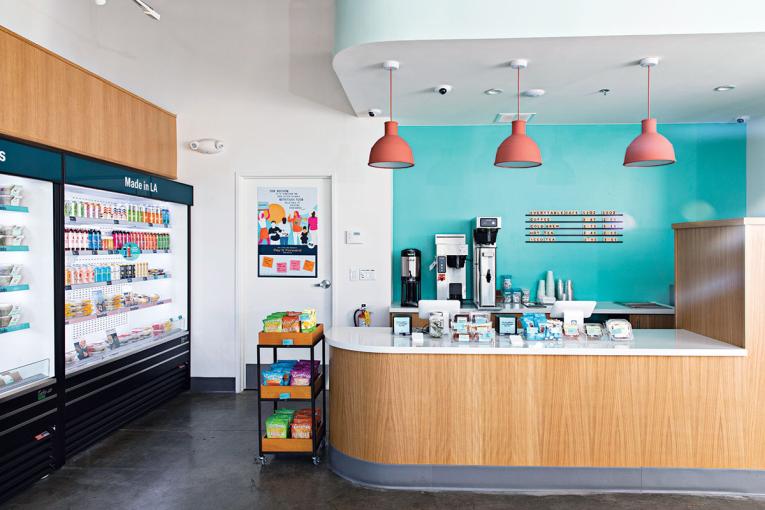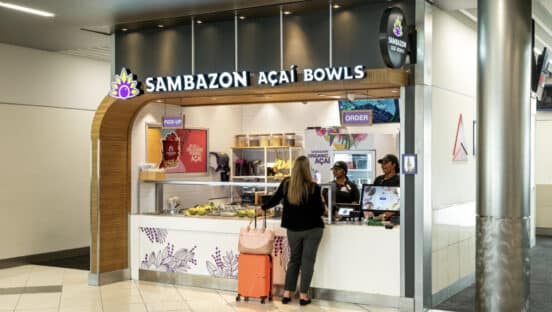Franchising can be one of the most powerful avenues for aspiring entrepreneurs of color. On average, Black-owned franchises earn 2.2 times more than Black-owned independent businesses, according to Oxford Economics. Yet, barriers to entry still prevail, especially for lower income communities without access to financing or education on the opportunities available. Industry connections also go a long way, and a number of franchise businesses are passed on to younger generations from parents or other family members, which narrows the playing field.
In recent years, the franchise industry has been grappling with how to boost diverse representation in corporate leadership structures, as well as in their franchisee base. A few examples: McDonald’s U.S. committed to investing $250 million over five years to help candidates with socio-economic barriers with alternatives to traditional financing. Wendy’s launched “Own Your Opportunity,” a franchise recruitment initiative to create pathways to franchise ownership specifically for women and people of color. Ben & Jerry’s waives transfer fees for existing franchisees who sell to a minority candidate. And Yum! Brands—parent of KFC, Pizza Hut, Taco Bell, and the Habit Burger—initiated the Yum! Franchise Accelerator, a fellowship program designed to advance underrepresented people of color and women interested in restaurant franchising.
Meanwhile, Everytable—a multi-channel, fresh-prepared food business that fights for food justice—committed to investing $100 million to bolster its Social Equity Franchise Program, which provides financial capital, training, and mentorship to aspiring small business owners to help them become Everytable store owners.
“Long term, what that means is ownership will be a large percentage of Black and brown folks who come from backgrounds where this wasn’t an opportunity they’ve been able to take advantage of,” says Bryce Fluellen, executive director of Everytable’s social equity franchise program. “They’re our partners and will grow alongside us.”
The model directly invests into marginalized entrepreneurs of color by paying qualified candidates during the training process to become a franchise owner—and they don’t need to pay anything out of pocket initially, which differentiates Everytable from other diversity incentive programs. Once a candidate becomes a franchise owner, they then have an extended payback period.
“The only thing you have to come to the table with is commitment, your ability, and your perseverance,” says Fluellen, a master chef who joined Everytable after operating a full-service catering company in Los Angeles. Fluellen has been fighting for food justice and social equity for more than 20 years, and has helped implement strategic programs at Starbucks, Magic Johnson Enterprises, and the American Heart Association.
Based in southern California with about 50 locations open, Everytable trains candidates on everything from labor complexities and customer interactions to local store marketing, plus provides one-on-one weekly mentoring sessions.
“We’re providing a career pathway for individuals. How do you get from dishwasher to director of operations? Is it visible? Are there steps in place? What do I need to accomplish as an individual to get there?” Fluellen says.
Still, lack of education and awareness of opportunities remain one of the biggest obstacles to becoming a franchise owner.
“I think sometimes that can still be somewhat of a secret, particularly for frontline workers. You see an individual in a certain executive leadership position, and it seems so out of reach for people who are living day-to-day on the ground in the kitchen, in the front of house or back of house. We’re making some investments there,” Fluellen says.
Fluellen also throws in a word of caution to restaurant leaders and franchisors: Don’t make a lofty statement or commit to a diversity initiative if you don’t have a plan on how to make it happen.
“You have to put in the work; what is this going to take to really be sustainable? It takes a real conversation, because what you don’t want to do is talk about impacting peoples’ lives, get people excited about opportunities, then not be able to follow through on it,” Fluellen says.
Assessing an organization’s current diversity, equity, and inclusion baseline is a crucial first step to developing any sort of equity program, says Kendal Tyre, who co-leads law firm Nixon Peabody’s franchising and distribution team as well as the firm’s DEI Strategic Services offering.
Restaurant leaders should find a way to analyze the issues stakeholders are calling attention to, gather best practices from around the industry to come up with solutions, then implement a way to monitor progress, Tyre says. “That’s what we’re seeing has worked.”
The International Franchise Association, for example, launched MinorityFran to help IFA member brands recruit more minority franchisees into their systems, plus undertook implementing a franchise census to collect more statistics on diversity within its system. IFA also launched the Black Franchise Leadership Council, which pulls a number of franchisors and their executive team leaders into training seminars that address issues in financing structures and how to increase Black franchise ownership in their systems.
“Diversity issues as we identify them today are different than 10 years ago. What’s most important is to create an institution that has a DEI [diversity, equity, and inclusion] framework that can adjust with the times, and provide the feedback and change in practices to accommodate the changes in the marketplace,” Tyre says.
“People are really looking for a silver bullet to address DEI issues, and the silver bullet really doesn’t exist, because DEI issues will always be a part of the conversation,” he adds.








